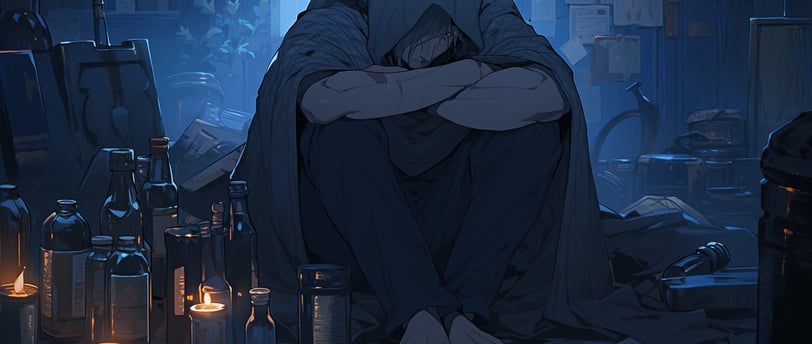Beyond the Filter: Finding Value Beyond Material Excess
This quote by Seneca reminds us that external pleasures like alcohol are fleeting and hold no true value. We are not defined by what we consume, but by our character and actions.
STOICISM BLOG
2/12/20242 min read


“You know what wine and liqueur tastes like. It makes no difference whether a hundred or a thousand bottles pass through your bladder—you are nothing more than a filter.” —SENECA
Do you resonate with Seneca's blunt statement? Does it feel harsh or insightful? Why or why not?
Have you ever felt like you're just going through the motions, passively consuming life without truly engaging with it? Share your experiences.
Beyond physical pleasures, are there areas in your life where focusing on quantity over quality might diminish your sense of fulfillment? What are your thoughts?
Simple Explanation: This quote challenges the idea that simply accumulating experiences, like drinking countless bottles of wine, leads to a fulfilling life. Instead, it encourages us to be mindful and actively engage with the experiences we have, seeking their deeper meaning and lessons.
Deep Dive: This quote aligns with core Stoic principles like the dichotomy of control and the importance of focusing on virtue and living in accordance with reason. Stoics like Epictetus emphasized that true happiness lies not in external things, but in our internal state and our choices. As Marcus Aurelius wrote, "Waste no more time arguing about what a good man should be. Be one."
Seneca's metaphor of the filter is meant to provoke us to consider if we are simply passively allowing life to flow through us without extracting its essence. Instead, he encourages us to be active participants in our experiences, asking ourselves:
What am I learning from this experience?
How is it shaping my values and perspectives?
Am I contributing positively to the world around me?
By approaching life with intentionality and seeking meaning within every experience, we can transcend the limitations of being mere filters and become active creators of a fulfilling and purposeful life. As Seneca himself stated, "True happiness is to enjoy the present, without anxious dependence upon the future, not to amuse ourselves with either hopes or fears but to rest satisfied with what we have, which is sufficient." This doesn't mean avoiding pleasure or experiences, but rather, approaching them with mindful awareness and seeking their deeper significance.
Applicable Situations:
Feeling stuck in a rut or unfulfilled by external pursuits.
Struggling with consumerism or a sense of emptiness.
Seeking to live a more meaningful and engaged life.
Facing challenges in relationships and desiring deeper connections.
Experiencing career dissatisfaction and searching for purpose in your work.
Action Items:
Reflect on your recent experiences: Were you passively consuming them, or actively engaging with them? What could you have done differently?
Choose one upcoming experience: Plan to approach it with mindfulness and intention, asking yourself the questions mentioned above.
Share your journey: Discuss meaningful experiences with others to gain new perspectives and deepen your understanding.
Remember, Seneca's quote is not meant to discourage enjoyment or experiences. It's a call to be more than just passive filters, actively seeking meaning and growth in all that life offers. By approaching life with intentionality and a focus on personal growth, you can transform your experiences into stepping stones on your journey toward a more fulfilling and meaningful life.


